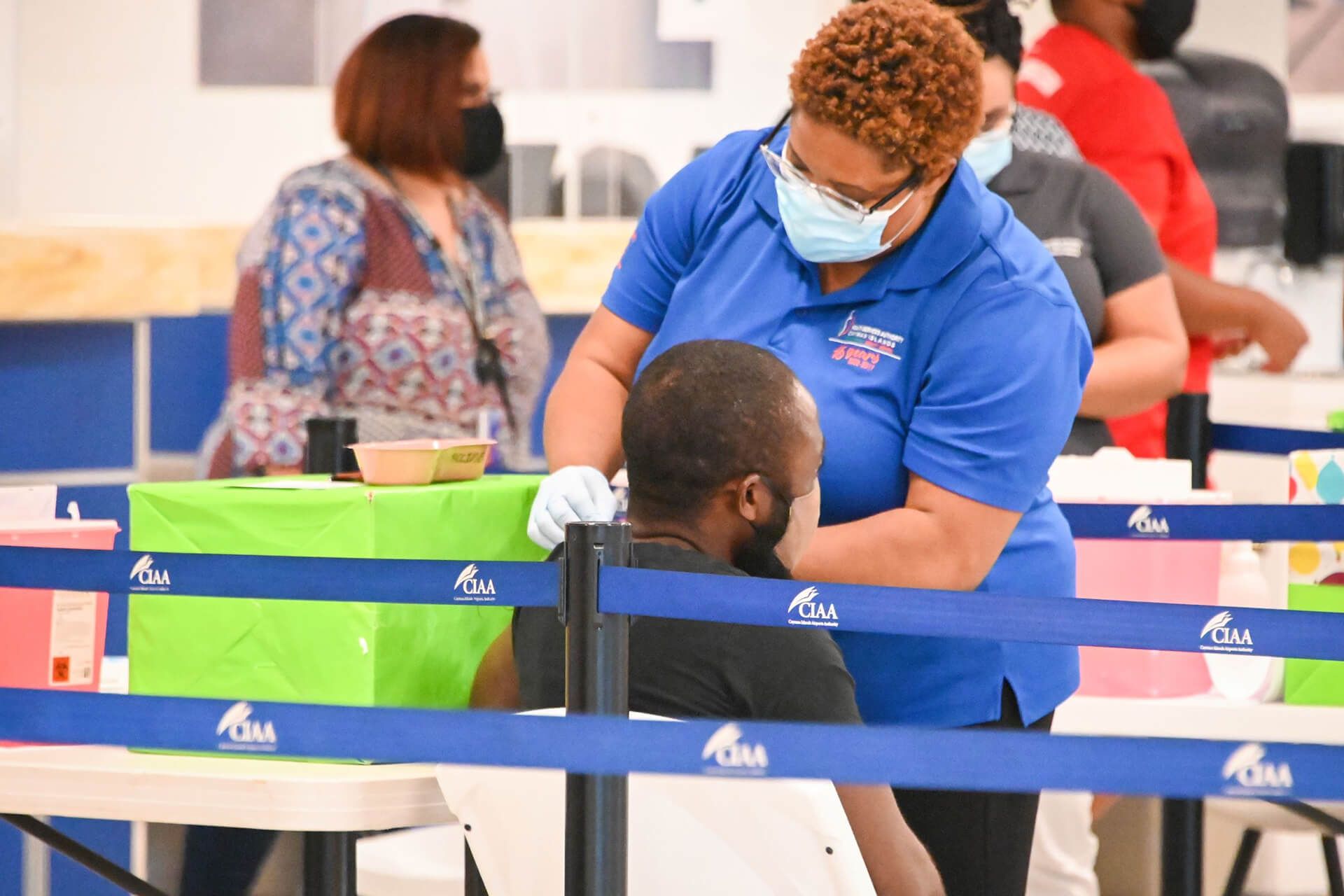Government is moving ahead with plans to mandate vaccinations for new and renewing work-permit holders in the Cayman Islands.
Amendments to the Immigration (Transition) Bill, published Thursday night, specifically pave the way to mandate expatriate vaccinations and are set to head to Parliament for debate on 4 Oct., which is when the House is next expected to sit.
Premier Wayne Panton, according to a statement issued Friday afternoon, used his powers under section 77 of the Cayman Islands Constitution (Amendment) Order 2021 to reduce the public consultation period from 28 to 10 days “as the amendments are part of urgent measures being put in place by the Government to protect the community from the COVID-19 virus and aid in the country’s economic recovery from the global pandemic”.
Government also published amendments to the Customs and Border Control Bill which proposes to require vaccination for anyone seeking to land in, enter into, remain or attend an educational institution in the Cayman Islands.
The reduced public consultation period of 10 days for both bills end on Sunday, 3 Oct.
Though the changes do not specifically state mandating a COVID-19 vaccination, they speak to the administration of an approved vaccine course used to prevent the spread of any notifiable disease under the Public Health Act (2021 Revision). COVID-19 is listed as a notifiable disease.
Deputy Premier and Minister for Border Control & Labour Chris Saunders, through the statement said, “The PACT Government remains steadfast in its commitment to keep the health and safety of our people and residents at the forefront of all policy decisions relating to the reopening of our borders. A critical aspect of keeping our people healthy is ensuring that a high percentage of our population is vaccinated against COVID-19.”
He pointed out Government had previously announced its intention to introduce mandatory COVID-19 vaccination requirements for new expatriate workers and those seeking renewal of their work permits, and the gazettal of the amendments and the public consultation period are the first legislative steps in that process.
“As we see the deadly and overwhelming havoc that COVID outbreaks have had, and are currently having, on neighbouring countries in the region and on fellow UK Overseas Territories, it is important that we act swiftly in taking every precaution to protect our community,” he added.
Unvaccinated individuals, under this amendment, will be required to sign a declaration to complete an approved vaccine course within 40 days and comply with other instructions given by the Medical Officer of Health within a specific period.
What the changes require
Under the proposed changes to the Immigration Law, work permit holders; permanent residents; residents of independent means; those applying for a certificate of direct investment; and dependants will be required to be vaccinated and present their medical certificates to the director of Workforce Opportunities and Residency Cayman upon application for – or renewal of – their documentation.
Holders and those applying for a ‘Certificate for Specialist Caregivers’ are also going to be required to be vaccinated as part of the application or renewal process, it is proposed.
As for unvaccinated individuals, it is put forward that a declaration must be signed by the person that he/she (and any dependant of the person) will complete an approved vaccine course within 40 days after an application is granted; or within 40 days after arrival in the Islands, if the person does not reside in the Islands; or within such other period of time directed by the medical officer of health.
In the case of an employee or former employee who has been vaccinated with a vaccine that is not an approved course, a declaration must be signed that they will comply with any directions from the medical officer of health with regard to vaccination.
Anyone who fails to be vaccinated in accordance with a declaration, or to comply with any directions of the medical officer of health, will have their permit revoked by the immigration board or by the WORC director.
The amendments will not apply to dependants who are not eligible for vaccination under the Public Health Act (2021 Revision) or to those persons for whom medical certificates are provided, which certify that vaccination would be injurious to the health of the person in question.
In this case, the proposed bill states that the medical officer of health will grant an exemption to the person from the requirement to provide a vaccination certificate, declaration or medical certificate, on the grounds that an emergency situation or an exceptional circumstance exists.
However, exempted individuals will still have to comply with any conditions imposed by the medical officer of health when granting the exemption. Any breach is an offence and is liable on summary conviction to a fine of $10,000 or to imprisonment for two years, or to both, the proposed law states.


